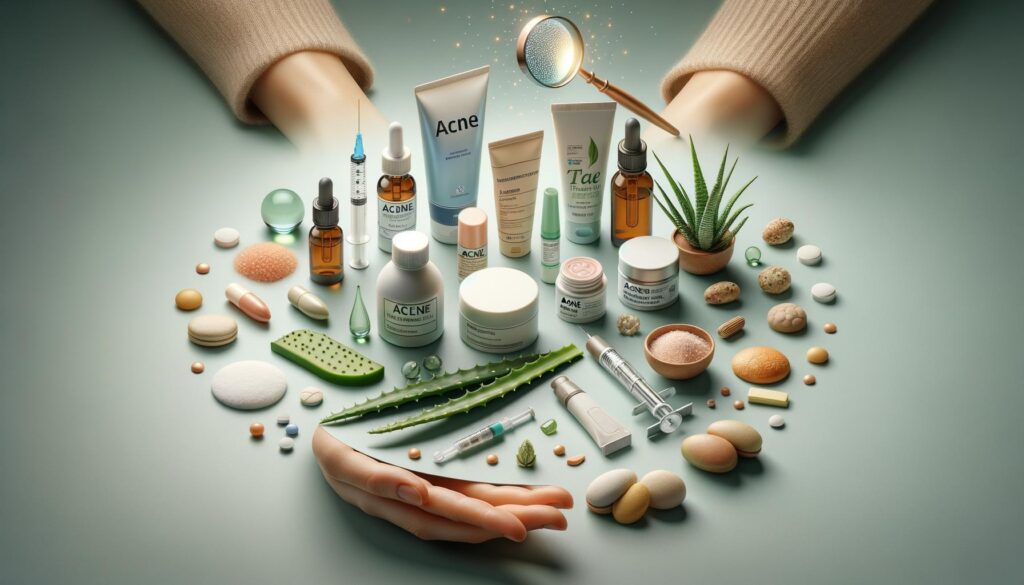Exploring Effective Acne Treatment Options
Understanding Acne and Its Causes
Acne is a common skin condition that affects many people worldwide, characterized by pimples, blackheads, and cysts. It typically occurs when hair follicles become clogged with oil and dead skin cells. There are several factors that can contribute to the development of acne, including hormonal changes, genetics, diet, and stress. Hormonal fluctuations, particularly during adolescence, can lead to an increase in oil production, which can exacerbate acne. Additionally, a family history of acne can increase one’s likelihood of experiencing it. Understanding these underlying causes is essential for selecting the most appropriate treatment options.

Topical Treatments: A First Line of Defense
Topical treatments are often considered the first line of defense against acne. These treatments are applied directly to the skin and can help reduce oil production, inflammation, and bacterial growth. Common topical treatments include:
- Benzoyl peroxide: Helps to kill bacteria and reduce inflammation.
- Salicylic acid: Aids in exfoliating the skin and unclogging pores.
- Retinoids: Derived from vitamin A, they promote cell turnover and prevent clogged pores.
These treatments are available in various forms, such as gels, creams, and lotions. For many individuals, topical treatments can effectively manage mild to moderate acne when used consistently.
Oral Medications: Targeting Acne from Within
For more severe cases of acne, oral medications may be prescribed to target the condition from within. These medications include antibiotics, which help reduce inflammation and bacterial growth, and hormonal treatments, such as birth control pills, which can regulate hormonal fluctuations that contribute to acne. Another potent oral medication is isotretinoin, commonly used for severe cystic acne. It works by reducing oil production and shrinking sebaceous glands. However, due to its potential side effects, isotretinoin is typically reserved for cases that do not respond to other treatments.
Natural Remedies and Lifestyle Changes
While medical treatments are often effective, some individuals prefer natural remedies and lifestyle changes to manage their acne. These can include:
- Dietary modifications: Reducing the intake of dairy and high-glycemic foods may help some individuals.
- Stress management: Practices like yoga and meditation can reduce stress-related acne flare-ups.
- Proper skincare: Using non-comedogenic products and maintaining a regular cleansing routine can prevent clogged pores.
Though natural remedies may not work for everyone, they can be a complementary approach alongside traditional treatments.
Consulting a Dermatologist for Personalized Care
When over-the-counter treatments and lifestyle changes are insufficient, consulting a dermatologist can provide personalized care tailored to individual needs. Dermatologists can offer professional advice, prescribe stronger medications, or recommend procedures such as chemical peels or laser therapy. These treatments can be particularly beneficial for individuals with persistent or severe acne that impacts their quality of life. A dermatologist can also help monitor progress and make necessary adjustments to treatment plans, ensuring the most effective approach to managing acne.
